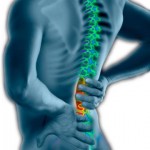Reducing Inflammation
 It might not be obvious, but inflammation is the baseline for pretty much all physical distress. Any time we’re experiencing discomfort, we can be assured that there is inflammation in the body. Inflammation can be general (throughout the body) or specific (localized to one or more areas). Either way, inflammation is a sign that things are not as they should be.
It might not be obvious, but inflammation is the baseline for pretty much all physical distress. Any time we’re experiencing discomfort, we can be assured that there is inflammation in the body. Inflammation can be general (throughout the body) or specific (localized to one or more areas). Either way, inflammation is a sign that things are not as they should be.
Inflammation comes in various degrees. Most of us generally only recognize gross inflammation of the sort that is associated with injury or infection. If we’re to truly get in control of our well-being, however, we need to become more aware of how inflammation expresses itself in more subtle, day-to-day fashion.
Probably the two most obvious yet overlooked signs of rampant inflammation in the body are body/joint stiffness and puffiness around the eyes and face in the morning. If you experience either (or both) of these symptoms, you can be assured that something needs to be addressed in your diet and/or lifestyle.
Chronic joint stiffness and/or pain is a sign that inflammation has reached a stage where rheumatoid arthritis is a serious risk. As inflammation runs rampant in the body, the immune system reacts, looking for a likely cause. If things are really bad for a really long time, the immune system can become so confused that it begins to attack its own host body.
Other expressions of an immune system under pressure from excessive inflammation are allergies. Although we have come to view allergies as an unfortunate fact of life for many people, the fact is that suffering from allergies is not a normal state of being. Allergies get their start in the same fashion as rheumatoid arthritis. In the presence of intense inflammation, the immune system begins looking for a likely cause. A “cause” may be latched onto in a couple of ways: Either a substance that is almost never experienced is identified as bad or a substance for which we’re in near-constant contact is deemed responsible. Either way, the result is the same, a new allergy.
Morning puffiness around the eyes and face is a strong indicator of a budding problem. Many people wake up with puffiness only to see it disappear over the course of the day and then repeat the following morning. While it’s comforting to assume that the problem isn’t serious, the lack of visible inflammation later in the day is actually more likely related to chronic dehydration. As the skin sags from lack of moisture, the inflammation is nicely concealed, thus giving one a false impression of health.
So, some 425 words of doom and gloom later, it’s time to shed some light on how one can prevent inflammation.
First up is water. Water is your friend. That’s not water disguised as tea, coffee, fruit juice or any other variety of liquid thereof, that’s plain ol’ water. The human body is mostly water and we need a good amount of clean water each and every day to remain healthy. The body’s primary means of eliminating toxins are urine and perspiration. Without adequate hydration, the body can’t cleanse itself and toxins build up in the liver, kidneys and lymphatic system. Toxic buildup is a huge burden on the body, and chronic toxicity can cause permanent damage. Water. And lots of it, folks.
Next up is diet. You’ve heard it here before, but I’ll say it again: A whole-food diet based on animal protein, raw veggies, fruits/berries and nuts goes a long way to ensuring that inflammation in the body is kept to a minimum. As hard as it may be to imagine, grains are not your friend. That means rice, bread and cereals are all off the menu. That also means that processed foods of any sort should also be held at arm’s length.
Moderate exercise that involves mostly interval-type training is important. This one is a bit tough for me, as I’ve always been the kind of person who enjoyed lacing up his runners and heading out for a couple of hours of jogging. Alas, studies are showing that so-called “steady-state” aerobic exercise actually offers diminishing returns. Apparently, we’ve evolved to be more responsive to interval training.
Inflammation could be considered a secret killer, and one of the more dangerous causes of inflammation is stress. Many of us in our modern day and age suffer tremendous stress at work and at home. Exercise and meditation are great ways of helping to get the stress out of the system. Stress depresses the digestive system’s ability to take in nutrients. It also causes the body to produce increased amounts of cortisol. Cortisol is a primary contributor to inflammation.
I look at intentional living as taking all these aspects of health into consideration and subsequently living in a fashion that is geared toward sustaining our well-being. We create what we think and we are what we eat. Think good thoughts. Eat and live with the conscious goal of well-being. Do not do unto others that which you would not have done unto you.
Don’t worry. Be happy.



February 4, 2011 at 2:24 pm
lynpeel
Inflammation is also thought to be responsible in some way for Alzheimers.
I’m interested to read that you believe animal protein is a good way to go. I tried to be vegan and vegetarian for years but finally realised that I needed the animal protein. I even feel better from eating it and obviously get my b12 levels right and iron!
You seem to be saying that inflammation can develop into rheumatoid inflammation … is there any evidence for this?
Thanks
Lyn
February 4, 2011 at 3:53 pm
trane
Hi, Lyn. It’s great to hear from you again.
Common inflammatory rheumatic disorders are well-documented as being triggered by stressors (environmental and emotional). Emotional stress causes the body to produce dramatically increased levels of cortisol, which is a significant inflammatory agent that just happens to impair immune system function. Examples of environmental stressors that have been directly tied to causing rheumatoid arthritis (and other autoimmune diseases) are, to name a few: certain medications, including birth control pills; second-hand smoke; food chemicals; air pollution; jet fuel vapour; chemicals found in personal care products, e.g., lipstick and hairspray.
To determine the likelihood of rampant inflammation being a significant cause of RA, one merely needs to note that the common denominator of all these known emotional and environmental stressors is … inflammation. Inflammation is an important part of our healing processes. Too much, like anything, is a bad thing.
Inflammatory response in the body is a trigger to the immune system. Its primary function is to protect the body against harmful substances, as well as aiding in the disposal of dead or dying tissue and promoting the renewal of normal tissue. Rather than being a symptom of infection or damage, it is a part of the body’s own healing processes in response to exposure to a pathogen.
Any time our body is exposed to a pathogen, our body triggers an inflammatory response. In a perfectly healthy person, this results in acute inflammation. For a person who is on the receiving end of constant environmental and/or emotional stressors, however, we can see a state of chronic inflammation. Chronic inflammation has the undesirable effect of actually changing the variety of cells found at the site of the inflammation.
Hay fever and atherosclerosis are other diseases associated with chronic inflammation. Vitamin D deficiency has also been strongly implicated in rising incidence of MS and RA in women. With Vitamin D being so instrumental in maintaining proper immune function, it’s really not a surprise to me to see the connection there.
As always, the farther down the rabbit hole we go, the more we see how everything is entirely connected. When it comes to the body, nothing operates in isolation from anything else.
trane
February 5, 2011 at 7:30 pm
lynpeel
This is really interesting information for me personally. Thanks so much for posting.